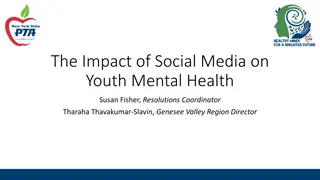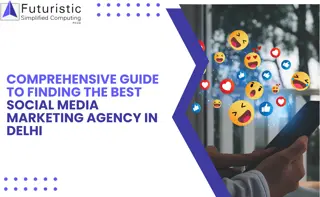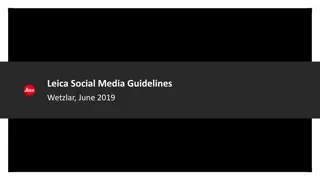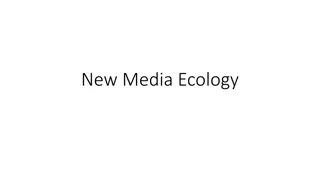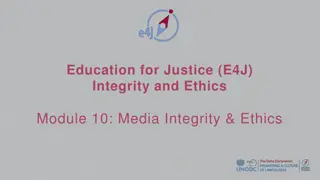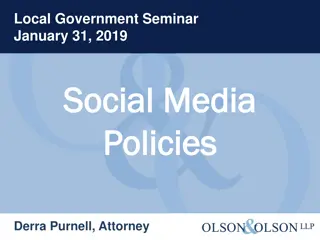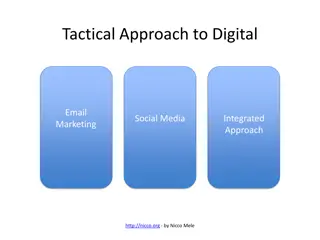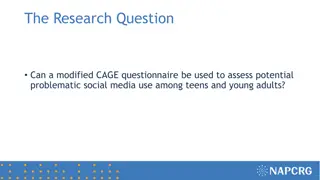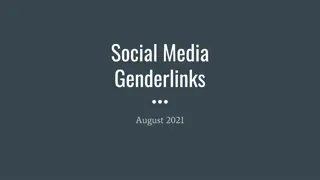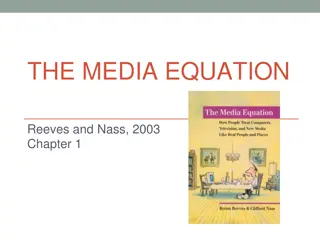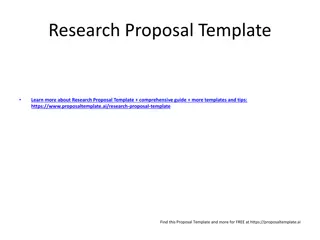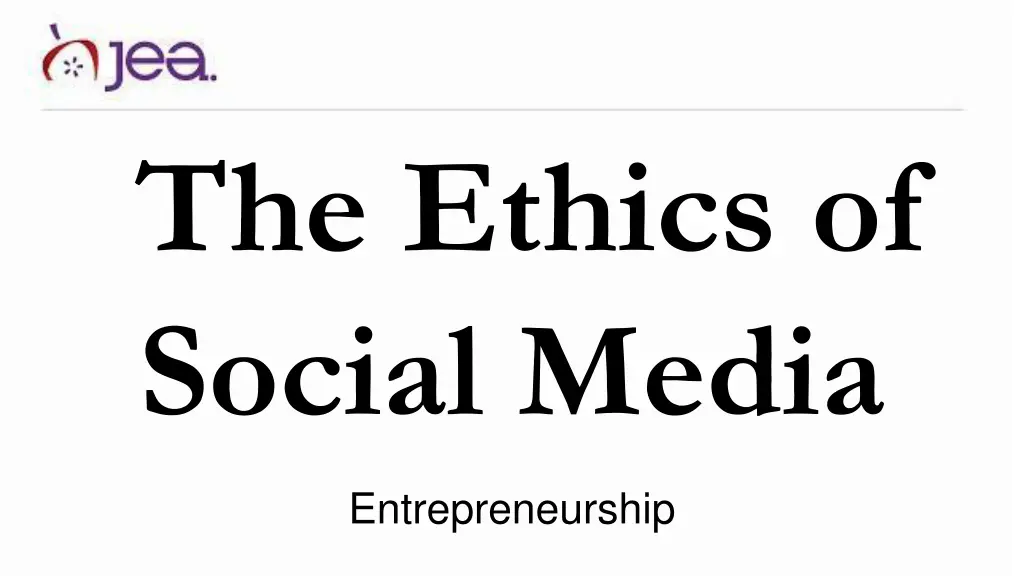
Ethical Guidelines for Social Media Entrepreneurship
Explore the ethical considerations for social media entrepreneurship, including identifying reporters, using official publication accounts, monitoring audience interaction, and following the 4 P's - professional, personal, polite, and positive. Learn how to navigate social media responsibly while engaging with your audience effectively.
Download Presentation

Please find below an Image/Link to download the presentation.
The content on the website is provided AS IS for your information and personal use only. It may not be sold, licensed, or shared on other websites without obtaining consent from the author. If you encounter any issues during the download, it is possible that the publisher has removed the file from their server.
You are allowed to download the files provided on this website for personal or commercial use, subject to the condition that they are used lawfully. All files are the property of their respective owners.
The content on the website is provided AS IS for your information and personal use only. It may not be sold, licensed, or shared on other websites without obtaining consent from the author.
E N D
Presentation Transcript
The Ethics of Social Media Entrepreneurship
Identification Reporters need to identify themselves AS reporters so other users understand that their comments may be published. It is unethical to remain anonymous as a reporter o This is especially important when posting from your own account. Make sure you tell people that you used social media when you finish your story o Italics at the end of an article: Social media outlets were used as reporting tools for newsgathering in this story.
Identification Have official publications accounts; reporters should not use their own accounts for publications business o Try to use official accounts for publications business as much as possible, and be VERY clear about your intentions if you use your own social media accounts Do NOT post content from class on your own social media accounts (e.g. photos) o Generally, content belongs to the publication o The audience should see these creative works in the publication
Audience Interaction Monitor, monitor, monitor! o Very little case law exists for the use of social media in schools for publications purposes o People have a tendency to say things on the Internet that they would not say in person Have a commenting policy o Encourage free discussion, but work to avoid causing a school disruption as much as possible
Audience Interaction Remember the 4 P s: Be professional, personal, polite and positive. Have fun! Keep posts/responses brief, but make sure you answer questions and are complete. o Make corrections and respond to criticism quickly, concisely and tactfully; don t argue.



